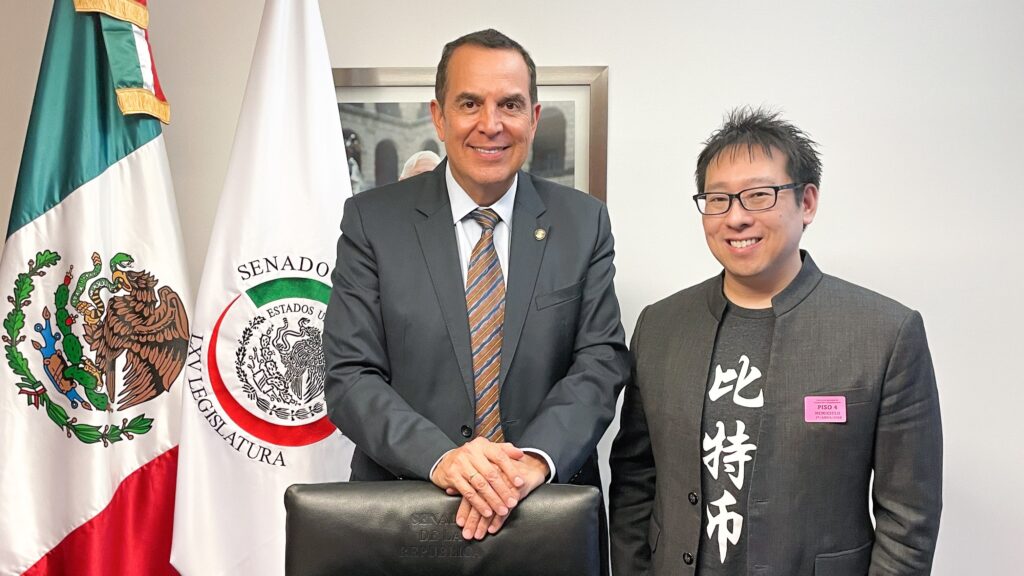The rise of Bitcoin, from an obscure experiment to a genuine currency adopted by nation-states has captured the attention of many. In 2021, the small Central American nation of El Salvador became the first to adopt Bitcoin as legal tender in an unprecedented move that has prompted many entities to ask what Bitcoin really is and how adopting it in different ways could benefit an entire country.
Bitcoin is a decentralized digital currency. Introduced in 2009 by its anonymous creator, Satoshi Nakamoto, Bitcoin’s main proposition was to eliminate the need for intermediaries or trusted third parties like banks. Transactions on the Bitcoin network are recorded on a public distributed ledger, ensuring transparency and security. With a capped supply of 21 million coins, Bitcoin is designed to be deflationary, making it an attractive asset for long-term investment and a potential hedge against inflation.
Serving as a peer-to-peer settlement system, Bitcoin enables individuals to send and receive funds globally, rapidly, and with minimal fees, making it a popular choice for both investors and those seeking a public, open, borderless, neutral and censorship-resistant financial alternative.
Due to its meteoric price increase, traditional financial institutions began to see Bitcoin as a genuine asset class and an investment for the future. As a true decentralized currency, Bitcoin’s properties resemble that of „digital gold,“ making it suitable as a treasury asset. However, beyond its use as an appreciating treasury asset, its properties have forced governments to take a second look at Bitcoin, whether it’s to encourage innovation within its ecosystem or to exert tighter regulations over Bitcoin ownership and transactions.
Samson Mow at Mexican Senate – 3 Paths to Nation State Adoption
Since Bitcoin’s nature makes it challenging for individuals to fully comprehend its benefits, governments and politicians may also find it difficult to understand how they stand to gain from adopting it. Nevertheless, resources like this site and JAN3’s own experience advising governments and political leaders, including El Salvador, Mexico, and Madeira, make it possible to clearly outline how nation-states can benefit from this open-source protocol.
A well-thought-out Bitcoin strategy has the potential to transform a nation’s development, generate economic prosperity, and ensure fundamental human freedoms for all citizens. As Bitcoin continues to evolve and gain acceptance globally, more nations are likely to explore its adoption and integration into their financial and economic systems.
Adding Bitcoin to the national treasury
Holding Bitcoin as a treasury asset similar to gold, or other foreign currencies, is the simplest step forward for a nation-state to implement and has a number of benefits.
Diversification of Assets: In addition to traditional fiat currencies and gold reserves, adding Bitcoin to the national treasury further diversifies any nation’s assets. Said form of diversification mitigates the risks associated with overexposure to a single asset class and provides a potential safeguards against an economic downturn.
Long-term Store of Value: Bitcoin’s scarcity and deflationary nature make it an appealing alternative to preserve wealth. By holding Bitcoin as part of the national treasury, the government can protect the nation’s reserves from being eroded by inflation and currency devaluation outside of its control.
Portfolio Performance: Including Bitcoin in the national treasury can improve the overall performance of any portfolio, and the same applies to a nation’s reserves. Many studies have shown that, over the long term, Bitcoin’s risk-adjusted returns have outperformed traditional assets like stocks and bonds.
Public Transparency: Secure custody measures are necessary to ensure that the nation’s Bitcoin holdings are protected from corruption, theft or loss. Implementing robust reporting protocols guarantees transparency, providing the public clear information about the value and management of the national treasury’s Bitcoin assets.
Issuing a Bitcoin Bond and mining Bitcoin

Nation-states can use two strategies to leverage Bitcoin’s potential: issuing sovereign bonds backed by Bitcoin and mining it using its own energy resources, with each approach providing distinct benefits for economic development and resource management.
Attracting Investment: Bitcoin-denominated bonds attract a new class of investors interested in exposure to Bitcoin but in a fixed income structure. This diversified investor base provides a stable source of funding for critical infrastructure projects, as demand for these bonds may increase due to the potential for capital appreciation.
Economic Stimulus: The proceeds from Bitcoin Bonds can be used to fund infrastructure projects that stimulate economic growth and development. These projects also create jobs, boost consumer spending, and drive innovation, positively impacting the nation’s overall economic wellbeing.
Energy Utilization: Leveraging a country’s resources for Bitcoin mining optimizes power usage and provides an additional source of revenue. By converting stranded excess energy into Bitcoin, nations can earn additional income that may be used to fund infrastructure, while supporting the global Bitcoin network.
Global Influence: Spearheading Bitcoin mining operations showcases the nation’s commitment to embracing innovative technologies and sustainable energy practices. This positions the country as a leader in the finance space and attracts global attention, possibly leading to strategic international partnerships.
Enacting Bitcoin-friendly legislation

Developing favorable legislation for all Bitcoin-related activities can open the doors for new businesses and technological progress, while at the same time paving the path for further economic development in the coming decades.
Driving Innovation: A clear regulatory framework for Bitcoin technology encourages local innovation and entrepreneurship. Startups and companies can develop new solutions and applications, contributing to the nation’s technological and financial development, while also increasing any country’s competitiveness on a global scale.
Financial Inclusion: A well-defined legal status for Bitcoin facilitates the integration of underserved populations into the financial system. The ease of transacting with Bitcoin can help the unbanked and underbanked gain greater access to financial services, allowing for economic inclusion, and thus reducing poverty.
Business Growth: Encouraging businesses to accept Bitcoin as a legitimate payment method (e.g. eliminating capital gains taxes on Bitcoin) opens up new markets and increases revenue opportunities. Companies that accept Bitcoin can attract an entirely new customer base, including tech-savvy individuals or international customers seeking a form of “Bitcoin tourism,” as seen in El Salvador since 2021.
Economic Sovereignty: Embracing Bitcoin with open arms could allow a nation to assert its economic sovereignty and reduce its reliance on external financial systems. At the same time, this would strengthen the country’s financial independence and resilience against economic sanctions or any geopolitical uncertainty.
Technological Advancement: A Bitcoin-friendly legal framework encourages research and development in the finance and tech sectors, with the latter even including less common fields like cryptography. This attracts top talent and fosters collaborations between private businesses, government institutions, or even academia, potentially leading to advancements in various sectors beyond Bitcoin’s initial scope.
In short, adopting a comprehensive Bitcoin strategy can involve either a single or multiple key aspects that go beyond the traditional financial realm. From diversifying the national treasury to supporting innovative financial instruments (see Prince Filip’s comments on Liquid), and building a conducive regulatory environment, a forward-thinking Bitcoin strategy empowers a nation to capitalize on the potential growth and transformation offered by its technology.
Naturally, this poses several challenges specific to each country, which is why getting an early start is vital to ensure a balanced and well-informed approach to Bitcoin adoption.
For any further inquiries on how nation-states or other jurisdictions can start building their Bitcoin strategy, contact JAN3 at coffee@jan3.com.


